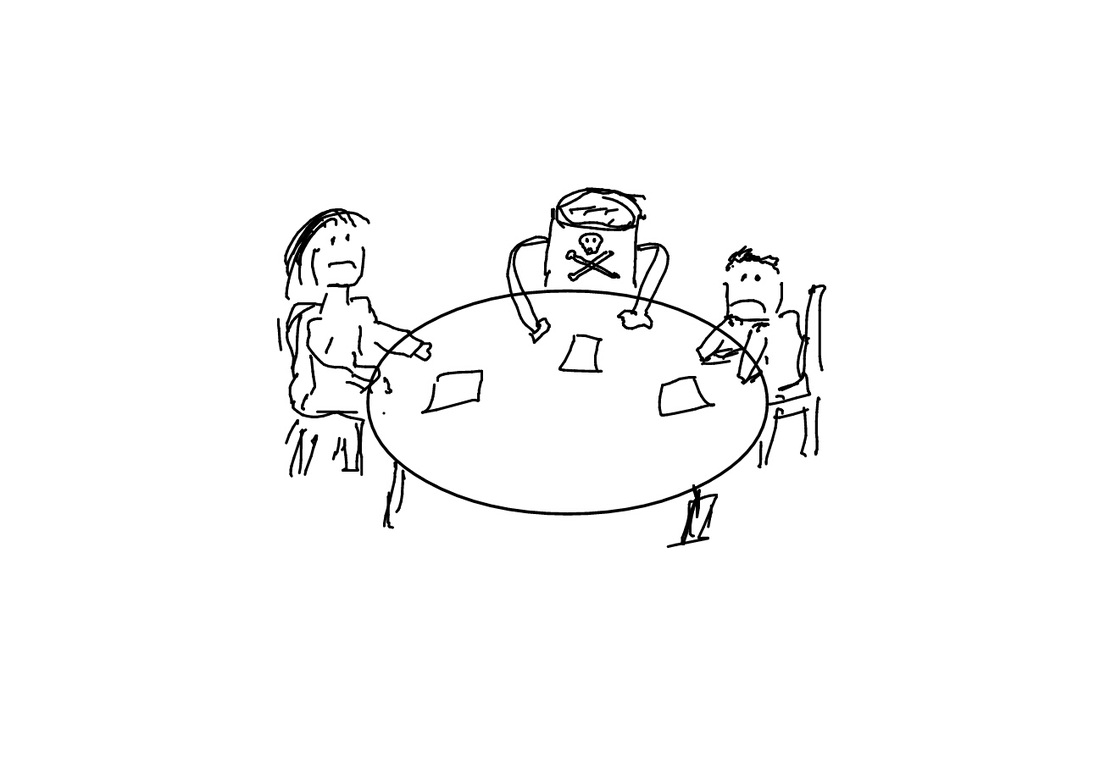
I often hear stories about "toxic" workers, who everyone blames for creating a number of problems for the team or organization. While it is true some people have personal traits that are too deep to resolve, often the reason these kinds of people thrive in a group is due to the complicity of the leaders in some level.
A way to radically improve your organization's results and make it immune to toxic workers is to cultivate beliefs, attitudes and behaviors where the toxic qualities cannot thrive. According to a new study from Harvard, the qualities that predict a toxic worker are lack of ethics, lack of empathy, overconfidence and a lack of honesty on how they present themselves. By developing practices that cultivate the values of integrity, empathy, trust, and honesty, the antithesis of work toxicity, your business will attain the resilience and high quality performance it needs to succeed in the long term.
The problem is that many organizations give lip service to high minded values without making any effort to express them in meaningful ways. The trick is identifying moments and circumstances where the employees have opportunity to apply those values, give them the resources so that they know how to apply them, and follow up with an accountability system to ensure a change of behavior is taking place.
For example, project and employee evaluations can be wonderful opportunities to express values in practice. One can cultivate honesty and trust by setting apart time to exchange honest and constructive feedback and establishing an accountability system. Evaluations also offer the opportunity to practice empathy and listening. These steps will help employees in developing their own personal integrity at work.
Cultivation is a process that needs to be periodically reexamined and innovated. It is growing the value in deeper and more subtle ways in its practice. Try it, the results will be transformative and you will never look back.
A way to radically improve your organization's results and make it immune to toxic workers is to cultivate beliefs, attitudes and behaviors where the toxic qualities cannot thrive. According to a new study from Harvard, the qualities that predict a toxic worker are lack of ethics, lack of empathy, overconfidence and a lack of honesty on how they present themselves. By developing practices that cultivate the values of integrity, empathy, trust, and honesty, the antithesis of work toxicity, your business will attain the resilience and high quality performance it needs to succeed in the long term.
The problem is that many organizations give lip service to high minded values without making any effort to express them in meaningful ways. The trick is identifying moments and circumstances where the employees have opportunity to apply those values, give them the resources so that they know how to apply them, and follow up with an accountability system to ensure a change of behavior is taking place.
For example, project and employee evaluations can be wonderful opportunities to express values in practice. One can cultivate honesty and trust by setting apart time to exchange honest and constructive feedback and establishing an accountability system. Evaluations also offer the opportunity to practice empathy and listening. These steps will help employees in developing their own personal integrity at work.
Cultivation is a process that needs to be periodically reexamined and innovated. It is growing the value in deeper and more subtle ways in its practice. Try it, the results will be transformative and you will never look back.
 RSS Feed
RSS Feed
